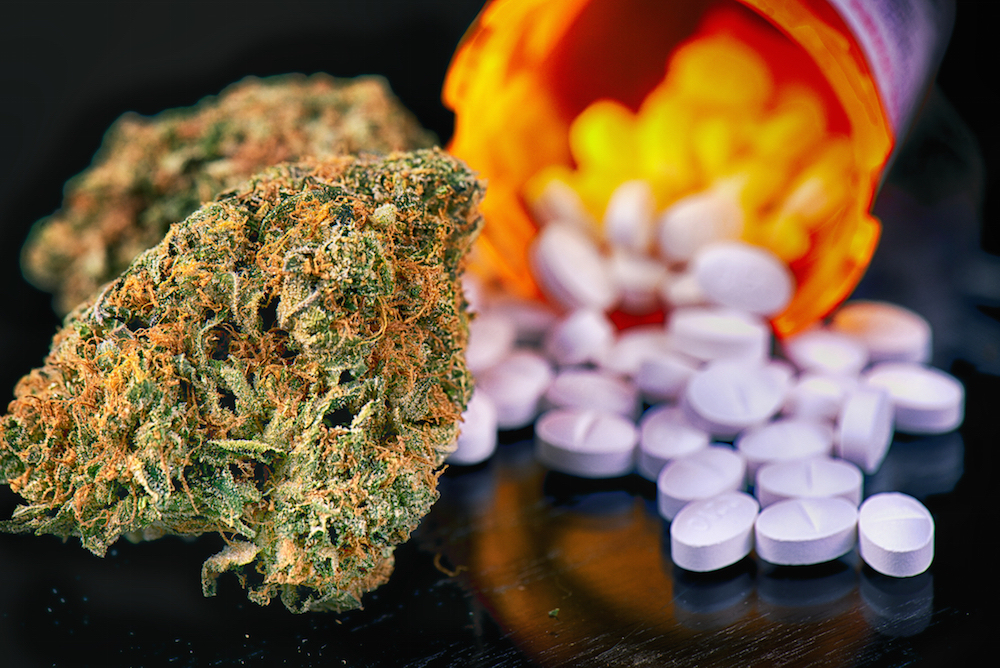
Two new studies published Monday (April 2) in JAMA Internal Medicine support existing research suggesting that people with access to medical cannabis are substituting it for prescription opioids.
NPR reports, “The research suggests that some people turn to marijuana as a way to treat their pain, and by doing so, avoid more dangerous addictive drugs.”
While analyzing Medicare data, researcher W. David Bradford, a professor of public policy at the University of Georgia, and his colleagues observed “substantial reductions in opiate use” in states with established medical cannabis dispensaries.
“We do know that cannabis is much less risky than opiates, as far as likelihood of dependency,” said Bradford. “And certainly there’s no mortality risk.” His study concluded that people with easy access to medical cannabis are less likely to use prescription opioids.
Specifically, the research team observed a 14% reduction in opioid prescriptions in “easy access” medical cannabis states.
While Medicare recipients filled an average of 23 million daily doses of prescribed opioids per year, the study observed a 3.7 million reduction in this number when medical cannabis dispensaries opened.
The second study analyzed Medicaid data and came to similar conclusions, reported NPR. Easing access to cannabis—whether for medical or adult use—has the “potential to reduce opioid prescribing for Medicaid enrollees,” whom the study authors say have a “disproportionately high risk for chronic pain, opioid use disorder and opioid overdose.”
Medicaid provides health insurance for low-income Americans, while Medicare does the same for Americans 65 years and older.
However, both of the studies’ authors note that while their findings suggest a correlation between having access to medical cannabis and lowered prescription opioid use—they do not prove cause and effect.
“Marijuana liberalization alone cannot solve the opioid epidemic,” concluded the authors of the second study. Rather, providing access to medical cannabis “may be one mechanism that can encourage lower prescription opioid use,” according to Bradford’s study.
Though cannabis is increasingly being used for its medical properties, it can be, and is, misused by some people.
“It is not without risks. Like any drug in our FDA-approved pharmacopeia, it can be misused. There’s no question about it,” said Bradford. “So I hope nobody reading our study will say ‘Oh, great, the answer to the opiate problem is just put cannabis in everybody’s medicine chest and we are good to go.’ We are certainly not saying that.”
